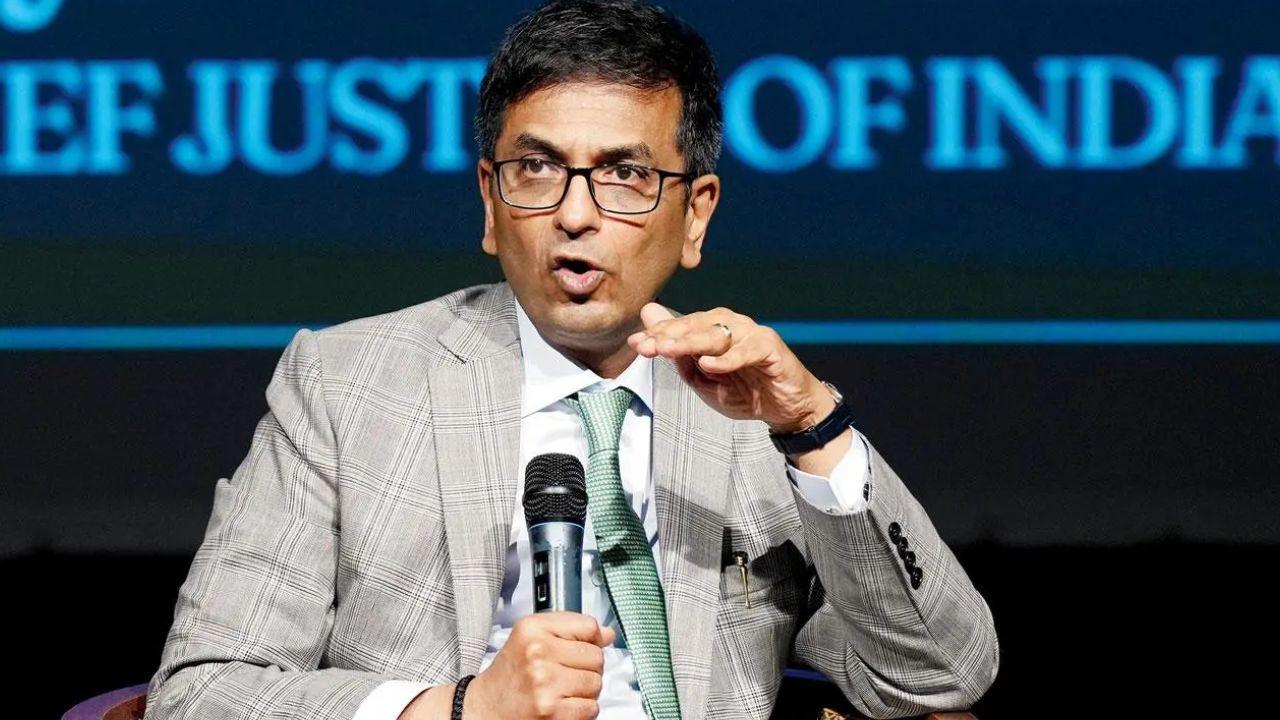Former Chief Justice of India DY Chandrachud recently addressed concerns regarding the interpretation of Supreme Court judgments and the perception of judicial independence on social media. Speaking at a conclave in Mumbai on Thursday, he highlighted how excerpts from legal rulings are often taken out of context and combined misleadingly on social media platforms.
Chandrachud specifically referred to the Supreme Court verdict in the Ram Janmabhoomi-Babri Masjid case, pointing out that most people have not read the full judgment before forming opinions online. He noted, “The judgement was 1,045 pages long because the case record was over 30,000 pages. Most people who criticise it have not read the judgement. It is easy to post opinions on social media without reading the full document,” as reported by ANI.
Emphasizing the importance of historical facts, the former CJI added, “We must not forget what happened in history. These facts were part of the evidence we considered in the case.” Justice Chandrachud was part of the five-judge bench that paved the way for the construction of the Ram Temple in Ayodhya.
Chandrachud also addressed how judicial independence is increasingly viewed in binary terms on social media. He explained that judges are often labeled based on whether their rulings align with the ideological views of netizens. “Unless a judge decides every case according to a netizen’s ideological view, they are not considered independent. Independence is also seen as only deciding cases against the government. But if you decide even one case in favour of the government, you are called ‘pro-government’,” he said.
The former CJI cited examples of landmark cases where the Supreme Court ruled against the government, including the electoral bonds case, the Aligarh Muslim University minority status case, and the Aadhaar verdict, underscoring that judicial decisions cannot be simplistically categorized.
When questioned about whether publicly admitting to prayer before such significant rulings compromises judicial neutrality, Chandrachud clarified, “Every day, judges enter a zone of conflict. I pray or meditate each morning to bring peace and equilibrium to my work,” as per ANI.
Chandrachud shared insights into his personal beliefs, revealing that he recited the Navkar Mantra daily during his tenure as Chief Justice. He also mentioned visiting diverse religious places such as a dargah while serving at the Allahabad High Court, and a church during visits to Goa. “My belief allows space for others to believe differently. There is nothing wrong with quiet reflection or prayer that helps a judge do justice with an even hand,” he said.
Importantly, the former Chief Justice stressed that these personal spiritual practices are protected under the Constitution, which guarantees every individual—including judges—the right to their own beliefs.
This candid discussion by Justice Chandrachud sheds light on the complexities involved in judicial decision-making and the importance of maintaining respect for judicial independence in a digital age rife with misinformation.
https://www.mid-day.com/news/india-news/article/former-cji-chandrachud-clarifies-about-his-decision-on-babri-masjid-desecration-amid-row-23595908


